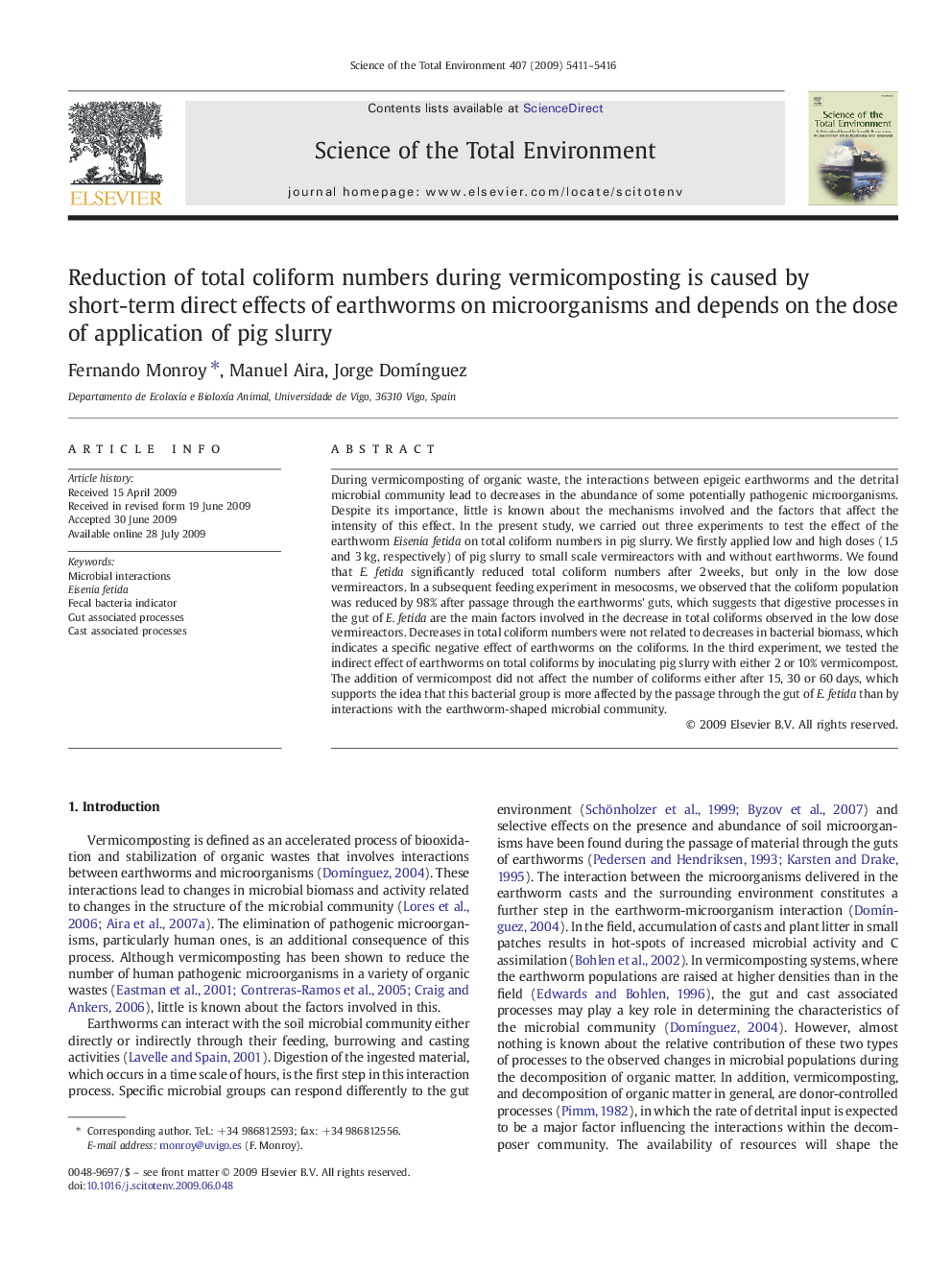| کد مقاله | کد نشریه | سال انتشار | مقاله انگلیسی | نسخه تمام متن |
|---|---|---|---|---|
| 4431114 | 1619890 | 2009 | 6 صفحه PDF | دانلود رایگان |

During vermicomposting of organic waste, the interactions between epigeic earthworms and the detrital microbial community lead to decreases in the abundance of some potentially pathogenic microorganisms. Despite its importance, little is known about the mechanisms involved and the factors that affect the intensity of this effect. In the present study, we carried out three experiments to test the effect of the earthworm Eisenia fetida on total coliform numbers in pig slurry. We firstly applied low and high doses (1.5 and 3 kg, respectively) of pig slurry to small scale vermireactors with and without earthworms. We found that E. fetida significantly reduced total coliform numbers after 2 weeks, but only in the low dose vermireactors. In a subsequent feeding experiment in mesocosms, we observed that the coliform population was reduced by 98% after passage through the earthworms' guts, which suggests that digestive processes in the gut of E. fetida are the main factors involved in the decrease in total coliforms observed in the low dose vermireactors. Decreases in total coliform numbers were not related to decreases in bacterial biomass, which indicates a specific negative effect of earthworms on the coliforms. In the third experiment, we tested the indirect effect of earthworms on total coliforms by inoculating pig slurry with either 2 or 10% vermicompost. The addition of vermicompost did not affect the number of coliforms either after 15, 30 or 60 days, which supports the idea that this bacterial group is more affected by the passage through the gut of E. fetida than by interactions with the earthworm-shaped microbial community.
Journal: Science of The Total Environment - Volume 407, Issue 20, 1 October 2009, Pages 5411–5416